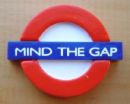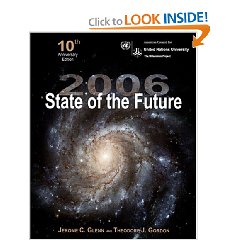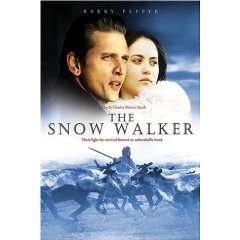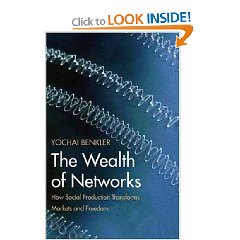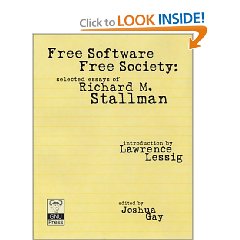
Foundation Reference for Future of Business Without Waste,
The author excels at painting a holistic view of the realities that are not being addressed by the media or by scholars in anything other than piecemeal fashion.
The bottom line: what we are doing now in the face of accelerating decay (changes and losses that used to take 10,000 years now take three years) is the equivalent of “trying to bail out the Titanic with teaspoons.” On page 21-22 the author states that we are using 10,000 days of energy creation every day, or 27 years of energy each day.
This is a practical book. In brief, we can monetize the costs of the decay, we can show people the *real* cost of each product and in this way inspire both boycotts (of wasteful products) and boycotts (Jim Turner's term) of solar energy and long-lasting repairable products.
The author appears to be both pro-business and very wise in seeing that the cannot save the environment by destroying business, but rather must save business so it can save the environment–we must help business understand that doing more with less is what they must do to survive.
The author includes a recurring theme from the literature, that diversity is an option generator, and hence one of the most precious aspects of life on Earth. Diversity is the ultimate source of wealth, and anything that reduces diversity is impoverishing the planet and mankind. In a magnificent turn of phrase, the author states that the loss of a species is the loss of a biological library.
At its root this book is about missing information, needed information, about the urgency of making all inputs, processes, and outputs from corporate production transparent. He quotes Vaclav Havel on page 54 as saying that this is an information challenge, a challenge of too much (or too little) information and not enough actionable intelligence supporting sustainable sensible outcomes.
This is also a financial problem that has not been monetized properly. Although E. O. Wilson takes a crack at the strategic or gross costs of saving the Earth in his book “The Future of Life,” this author looks at the retail level and describes the waste inherent in our military system. He reminds me of Derek Leebaert's “The 50 Year Wound” when he notes that the US and the USSR spent over 10 trillion dollars on the Cold War, enough to completely re-make the entire infrastructure of Earth, including all schools. As I myself like to note, for the half trillion we have spent on the war against Iraq, we could instead have given a free $50 cell phone to each of the 5 billion poor people, and changed the planet forever.
The author is compelling in pointing out that conservation alone would save more energy than drilling in Alaska, and that President Reagan not rolled back gasoline mileage expectations, we would today be free of any dependency of Middle Eastern energy.
A good part of the book focuses on the need to eliminate waste, what some call “cradle to cradle” (waste must be fully absorbed of other pieces of the system), and where waste cannot be eliminated, to include the cost of its storage in the price of the product, requiring producers of products to take them back (e.g. refrigerators).
I am inspired by the author's view that not only is technology NOT a complete solution, but that full employment is possible if we REDUCE our excessive acquisition of technology that not only replaces humans, but also consumes energy and produces pollution.
This is an extraordinarily clever and useful book that fully integrates discussions of feedback loops and especially of financial and legal feedback loops that are now misrepresentative. One example the author uses is the GATT demand that there be no discrimination of “like” products based on methods of production. This is code for blocking labor laws by imposing high tariffs on products made by slaves or under sweatshop conditions.
I completely agree with one of the author's most important opinions, that we must end corporate claims of “personality” and the rights of a person. This has had two pernicious effects, the first allowing corporations to dominate the public debate; and the second of exempting managers from legal liability and transparency.
The book emphasized the restoration of human and natural capital as vital foundations for evaluating investments–this would dramatically reduce the financial criteria's dominance and emphasis on short-term returns that do not reflect the cost of natural resources and lost jobs to the future and the community.
Distressingly but importantly, the author notes that a major component of the cost of goods is in advertising, where corporations spend more on advertising than the government spends on all secondary schools, and on packaging, much of which is designed to last vastly longer than the contents.
I especially liked the author's suggestion that insurance costs be included in the price of homes and of gasoline, essentially making universal insurance affordable for all. I also liked his idea for indexing Nations by their sustainability, i.e. Most Sustainable Nation (MSN).
The author ends with a restatement of his three fundamentals:
1) End waste
2) Shift to renewable power (solar and hydro)
3) Create accountability and feedback
Although this book was published in 1993 and the author has now published “Natural Capital” (next on my reading list), I did not discover it until recently and am now very enthused about the author's newest project, the World Index of Social and Environmental Responsibility (WISER). I am certain in my heart that a bottom up Earth Intelligence Network is forming, and that end-user voluntary labor–social networks–are going to place enough information in the hands of individuals to restore participatory democracy and moral communal capitalism. This author is extraordinary in his understanding and his ability to teach adults about reality and the future.
